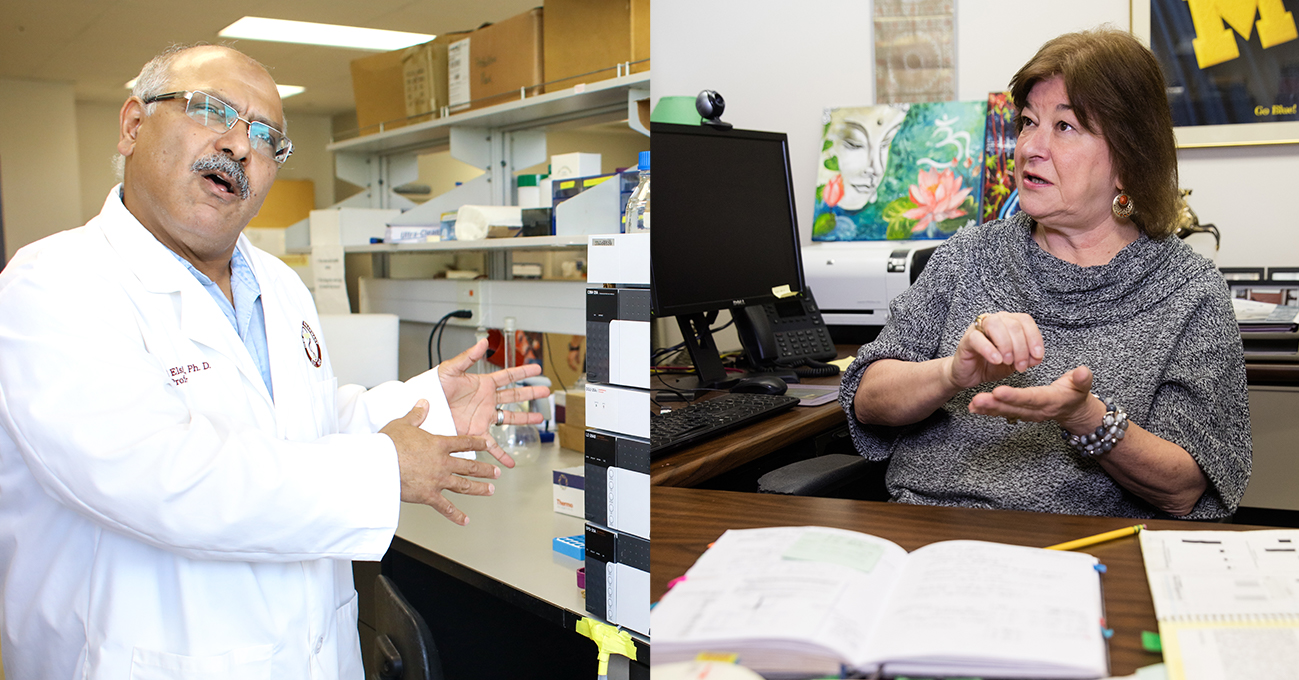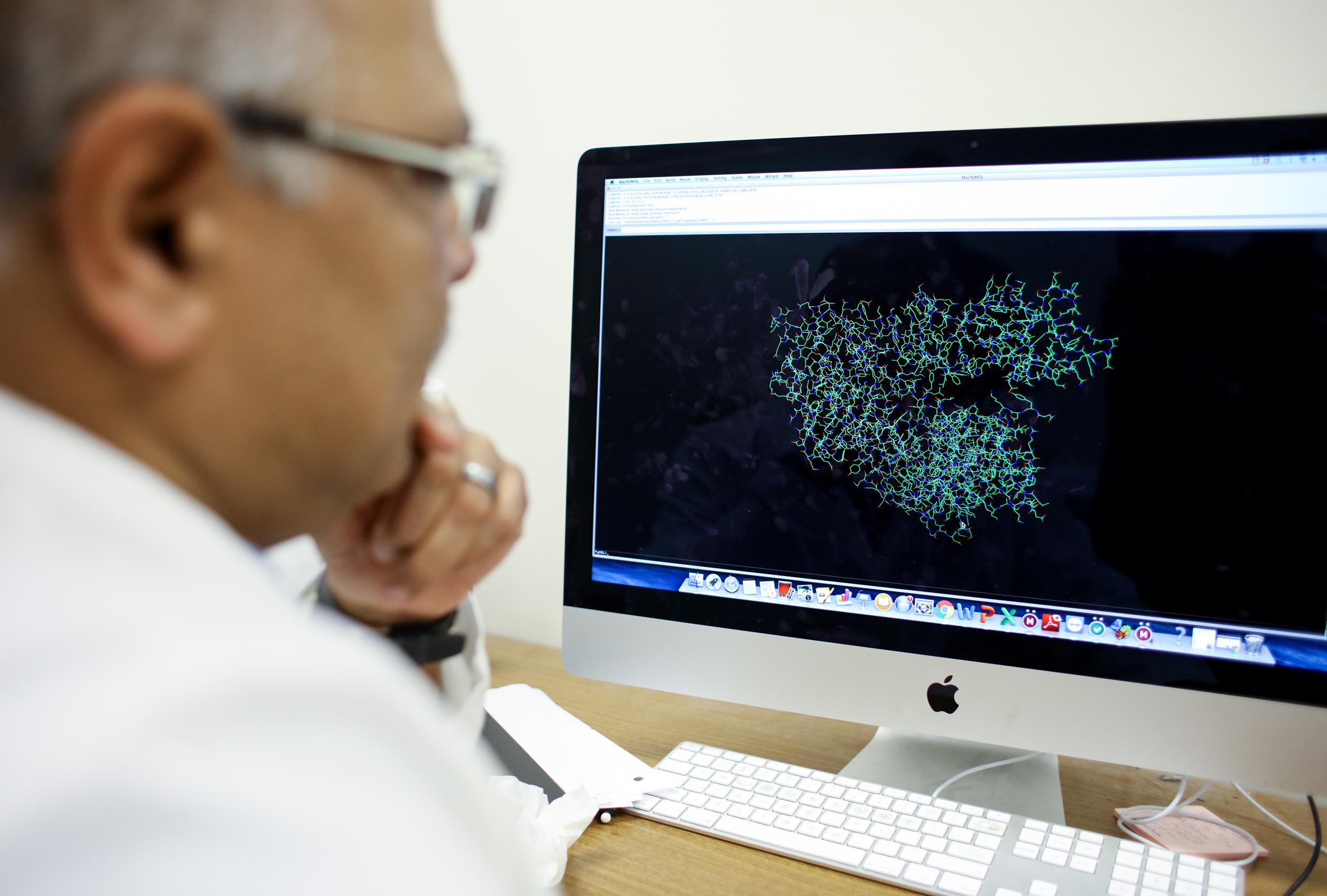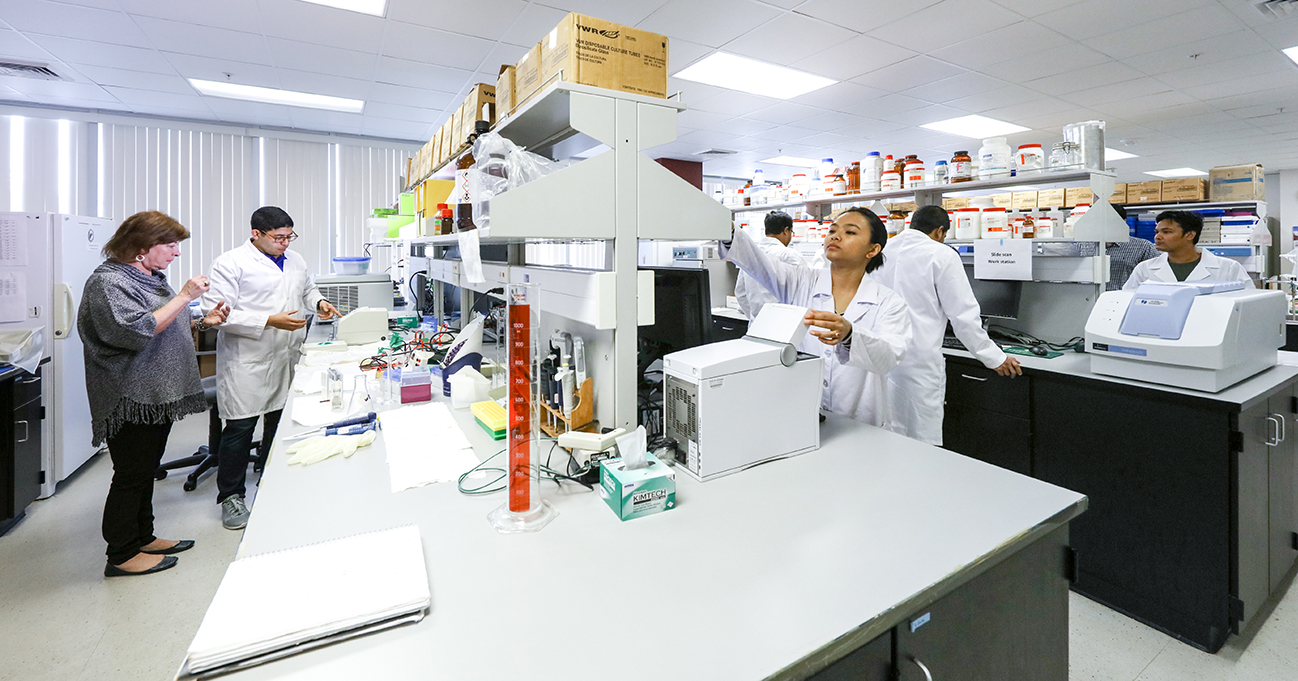
By Joey McNamara, ULM Office of Marketing & Communications
University of Louisiana Monroe’s School of Pharmacy professors, Drs. Khalid El Sayed and Karen Briski each received $50,000 research grants from the Biomedical Research Foundation of Shreveport.


The awards are from BRF’s Office for Research Development & Administration (ORDA). The office was launched as a part of BRF’s commitment to north Louisiana to pursue new research initiatives, provide support for clinical trials towards new treatments and diagnostics, and to improve patient care and economic development.
"This is another example of our faculty working collaboratively with the BRF to address pressing health needs," said Dr. John Sutherlin, Director of ULM's Office of Sponsored Programs and Research.
“I want to congratulate Drs. Briski and El Sayed for bringing this funding to ULM and thank the BRF for their confidence in these researchers and these projects. Faculty members like Drs. Briski and El Sayed continue to demonstrate that quality research is occurring at ULM, “ remarked Vice President of Academic Affairs Dr. Eric Pani.
Each grant will be used to hopefully bring additional grants to the university. “Efforts such are theirs are how we succeed in having ULM recognized among the top 200 universities in the nation for excellence in teaching, research, and innovation, especially in the health sciences,” said Pani.
Dr. El Sayed’s research grant expands on his research into olive oil and a oleocantanthal-based delivery method for a whole new class of drugs.

El Sayed’s research grant expands on his research into olive oil and a oleocantanthal-based delivery method for a whole new class of drugs.
“I’m very excited with this grant award because its funding will allow ULM to patent and promote a new drug class to the next level,” explains El Sayed.
This new seeding grant was awarded in part to the depth of the research team including Dr. Seetharama Jois from ULM School of Pharmacy and Dr. Amal Kaddoumi from Auburn University. Jois will study molecular protein data while Kaddoumi will interpret animal data in the direction of Alzheimer’s disease.
Through El Sayed’s research into cancer, they found something new and exciting. The project was an initial collaboration with the global pharmaceutical company, Eli Lilly.
The company helped El Sayed isolate a by-product of his research as a potential hypocholesterolemic drug with a novel, patentable that could lower cholesterol. There is only one current class of drugs, called statins, that lower “bad” cholesterol in patients suffering from high cholesterol and heart disease.
Many people are more familiar with brand names such as Crestor, Zocor, Lipitor, and Pravachol. These drugs are some of the most regularly prescribed drugs in the U.S. and have a global market of $12.2 billion dollars, but they have limitations and side effects such as muscle pain, digestive issues, headaches and nausea.
El Sayed and his research partners feel confident that this drug class exists because the first statins were discovered using the same chemical processes but with a different mechanism.
“It will ultimately enhance the chances to get National Institute of Health (NIH) funding on multiple research directions and applications,” El Sayed said.
Dr. Briski’s grant will be to supplement her existing research from the 1.7 million NIH grant she received in fall of 2016. Her work studies the treatment of diabetes’ side effects of hypoglycemia which can cause nerve damage and other neurological dysfunction throughout the body.

“Diabetic patients are found in every community. Hypoglycemia is an unavoidable aspect of their daily lives. If our outcomes here can lead us on the road to developing a therapeutic strategy whereby their brain is less vulnerable to injury and damage during hypoglycemic episodes, then it is going to have a major benefit to their quality of life,” Briski said.
Additionally, she hopes it will provide diabetes patients with a more stable prognosis
in their day-to-day lives. The only treatment is strict dietary glucose management
which mismanagement leaves patients in either a state of hypoglycemia or also with
overly-high blood sugar levels, or hyperglycemia. In the long-term, repeated hyperglycemia
can lead to blindness, skin infections, organ damage and nerve damage in the feet
and hands.
Briski’s studies suggest that estrogen plays a beneficial role in increasing the amount
of glycogen (stored glucose) in the brain and facilitating its release during episodes
of hypoglycemia.
Estrogen is best known as a major sex hormone in women but it is also present in males
at lower levels. However, it also has other uses in the body. Briski believes that
estrogen releases stored glucose in specific regions of the brain, so she plans to
target her research to these areas.
Over the next five years, Briski will be joined by four other ULM researchers, who served as co-investigators on the grant: Dr. Paul Sylvester, Dr. Seetharama Jois, Dr. Christopher Gissendanner, and Dr. Sami Nazzal.
This marks the second year of the BRF Seeding Funding Program. The program provides introductory grants so investigators can generate preliminary data which can then be used to apply for further funding and grants through government or private sources. Projects were peer-reviewed by out-of-state reviewers and then by the BRF’s internal committee.